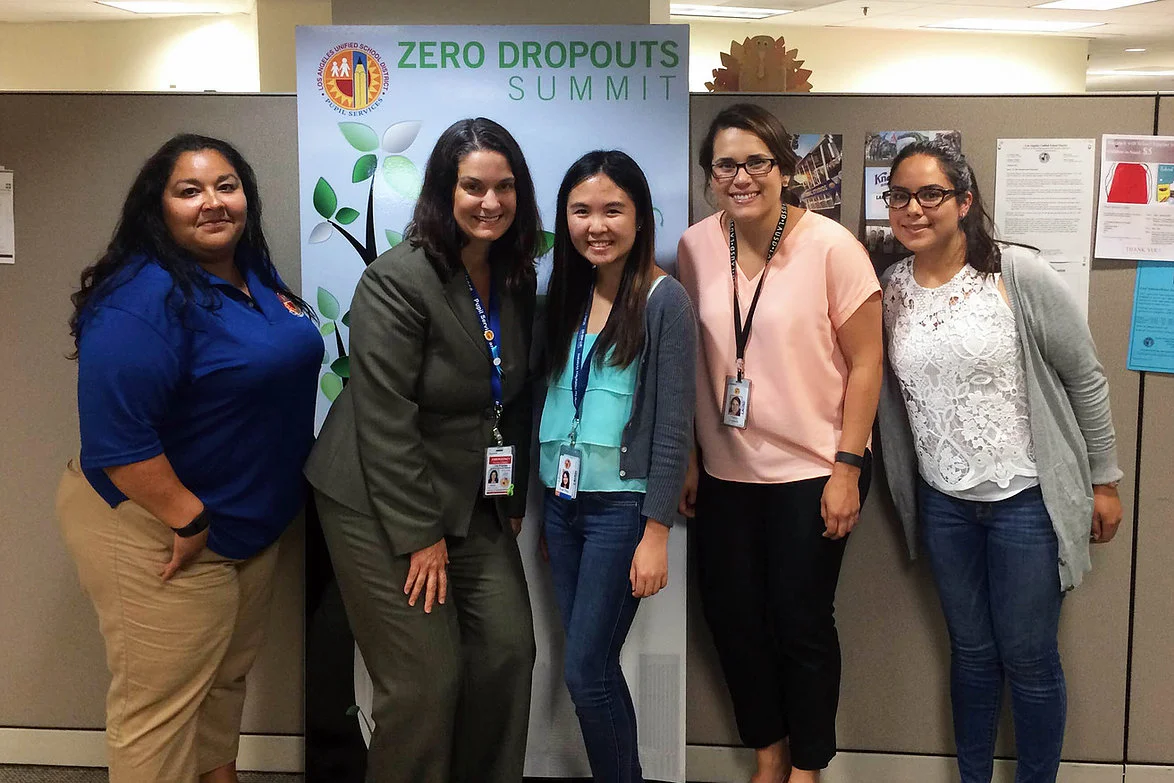Under the new leadership of Los Angeles Unified School District (LAUSD) Superintendent Michelle King, the LAUSD held its first forum geared toward providing better services to students and their families through the sharing of innovative strategies. On Saturday, July 23, at the Sonia Sotomayor Learning Academy, LAUSD educators and staff showed up in solidarity in order to live up to the promise that is expected from the Greater Los Angeles Schools.
The event began with opening remarks and a panel discussion with:
Michelle King, Superintendent of Schools, Los Angeles Unified School District
Steve Zimmer, Board President, Los Angeles Unified School District 4
Dr. Ref Rodriguez, Board Member, Los Angeles Unified School District 5
Monica Ratliff, Board Member, Los Angeles Unified School District 6
Vivian Ekchian, Northwest Superintendent, Los Angeles Unified School District
Christopher Downing, South Superintendent, Los Angeles Unified School District
Superintendent King opened with her mission for the schools, “It’s about the ‘ands’. It’s about the ‘us’. Not about the ‘eithers’ nor the ‘or’s. We need to change the narrative surrounding educators.”
Board President Zimmer spoke about how the narrative that LAUSD schools are “failures” were a short term way to advance the charter school movement. However, this narrative does not benefit anyone—especially the students, in the long run. This “failure” narrative is a deficit mindset.
“Teaching is listening. If we listen, we will be better facilitators for our kids’ learning. The violence in Los Angeles is affecting students in charter schools and they’re affecting students in LAUSD schools alike.” Board President Zimmer continued to say that it is our responsibility to our kids to work collaboratively to learn, to share, and to grow effectively. The forum discussed ways to replicate practices at schools who are already succeeding in underserving areas. LAUSD needs to put their best product forward; they can no longer afford to continue losing students.
The first workshop I went to was “Three Successful Magnet Programs,” where the methodology behind standards based grading was exposed. A discussion took place on the effects of disaggregated data and the benefits of a grading system that consistently reflects the educator’s integrity and the child’s learning.
Kirk Roskam, Principal at Irving Middle School, led an experiment where some of the teachers completely removed 0 grades for missing and incomplete assignments and instead used 70s to prevent outliers and other factors, from pulling a student’s grade average down. This method was proven to show and instill a growth mindset in students.
The next speaker was Dr. Heather Karuza, Assistant Principal at King-Drew Magnet. She emphasized that the success at her school was due largely to a student-centered approach, which included leadership opportunities and student created events. There is also a higher graduation standard at King-Drew Magnet than LAUSD requires. In order to further assist these students, there are college ready counselors, ambassadors, and a strong alumni presence.
King-Drew is known for its Medicine and Science Careers Program which is a junior-year elective class where students can experience and work in research labs, hospitals and clinics once a week. Resources are allocated and based on student needs. A common theme throughout the schools in LAUSD is the abundant amount of opportunity for credit recovery through: EdGenuity, Saturday school, summer school, community colleges, and charter schools.
The next speaker was Jennifer Macon, Magnet Coordinator at Cleveland Humanities High School. At Cleveland, education had to be approached as a team effort. There is a strong emphasis on human development over time in the humanities and this is reflected in the curriculum at Cleveland.
There are three themes at Cleveland: ideas matter, learning is interdisciplinary, and essays are used to assess, analyze, and integrate concepts so students may become articulate citizens in society. At Cleveland, they want to inspire a love of learning in students so they do not see it as a means to an end. Everything there is done in teams and Ms. Macon emphasized that labeling a group a “team” does not create a team. A high degree of interdependence needed to work toward a common goal or task is key to developing a team.
I ended my week with Pupil Services, where I spent some time and got a behind-the-scenes look at a small product of their labor: the YouthSource and FamilySource Center. There were lots of graffiti and trash along the side of the building, but as soon as I turned the corner, my eyes brightened. In front of me were at least two dozen children cleaning up the YouthCenter. This was their home and their labor was a small repayment to the community.
Inside, there were kids eating free lunch, receiving donated clothes, and lined up for what was a “Toy Donation Center,” where kids could borrow toys and take them home for a week and exchange it the next—the same way a library book is borrowed.
The little things we take for granted brought extreme happiness and thankfulness in these children’s eyes. The center also provided programs which similar to free daycare for many low income families. The programs were completely run by local teens through a leadership program. The week that I came in, they were planning for a career day for the kids to show that ending the poverty cycle was possible and that a better life is achievable. Though my time with LAUSD is almost over, I do not think I will ever cease to be amazed at the amount of work done and the lives touched on a daily basis within this huge bureaucracy.





